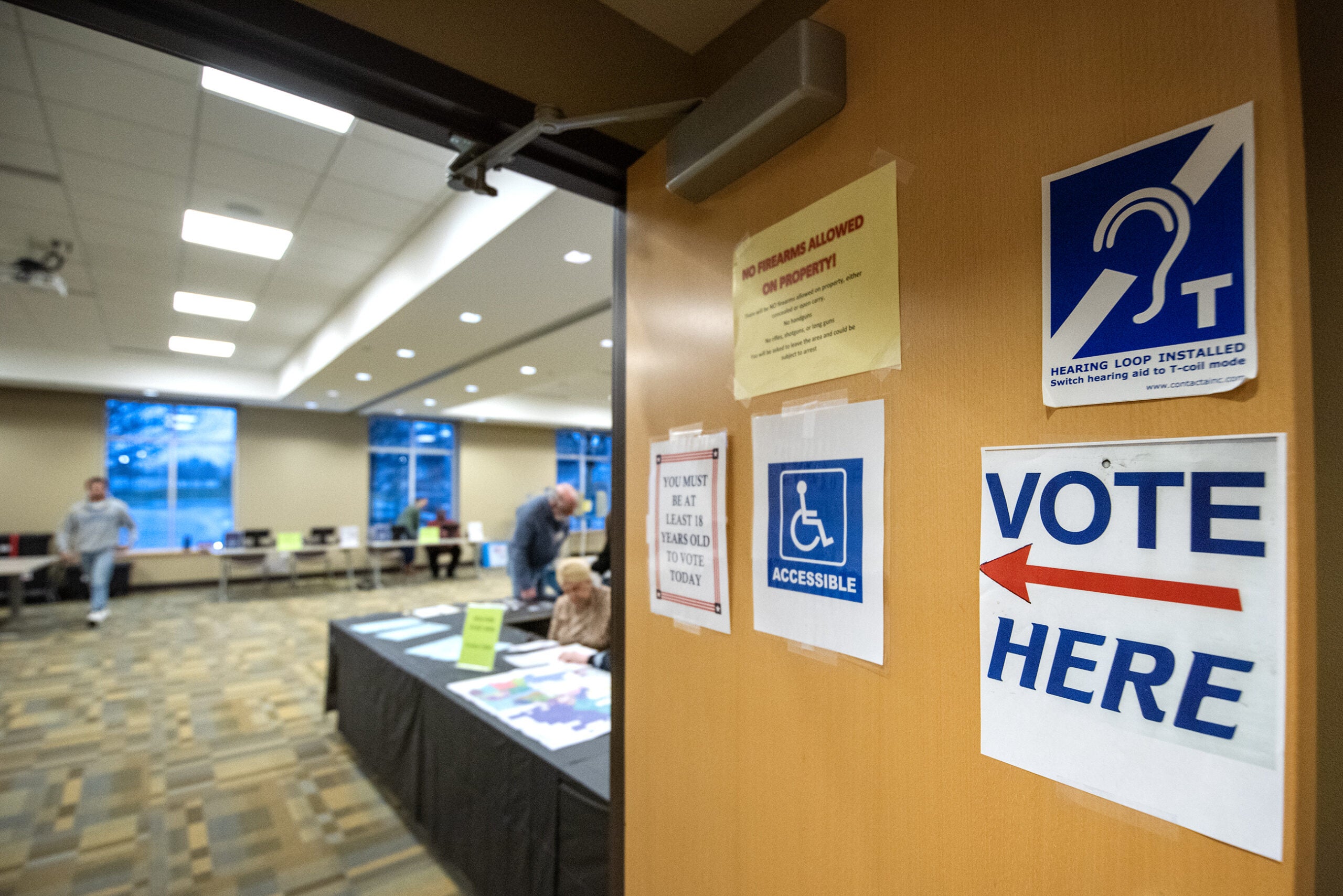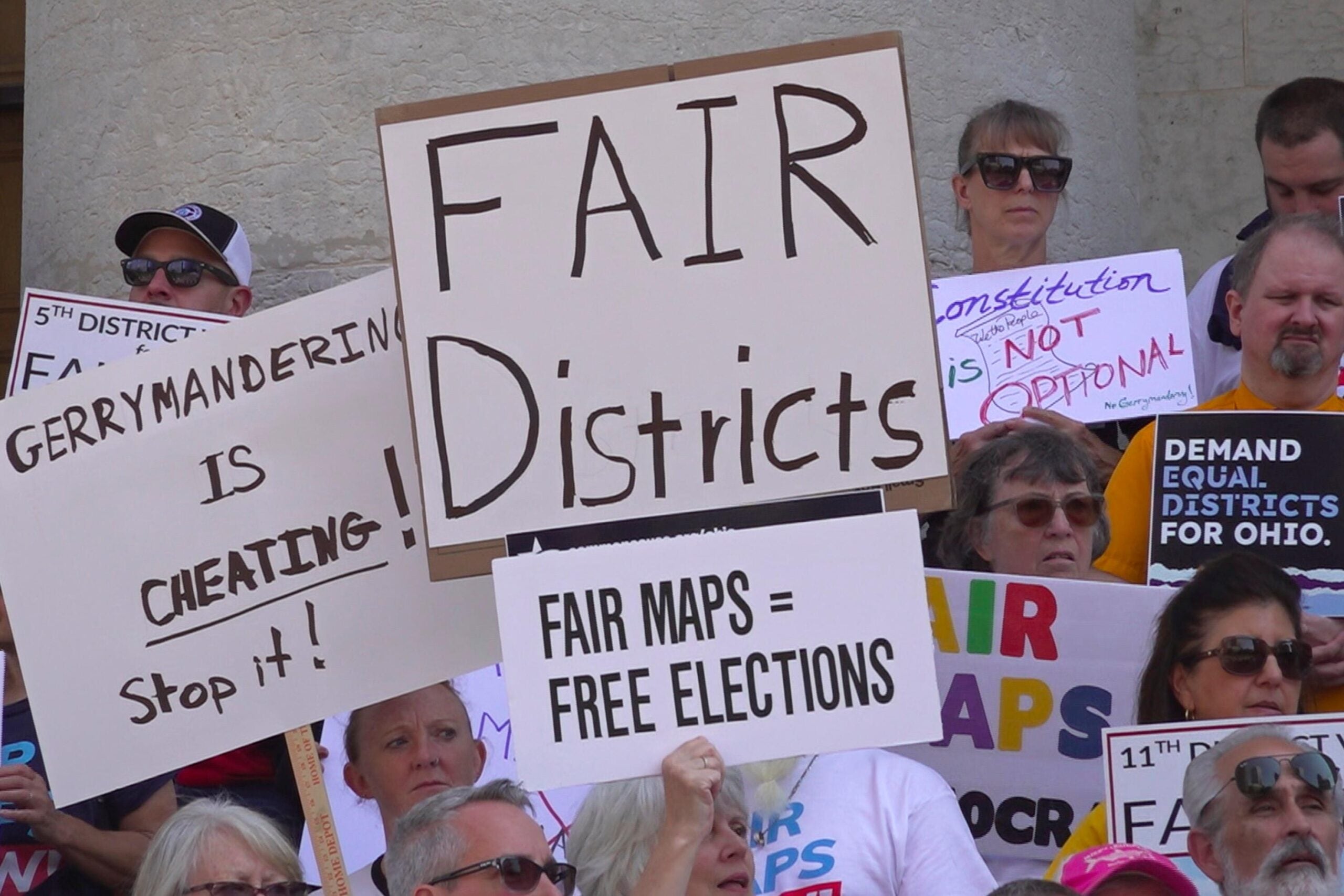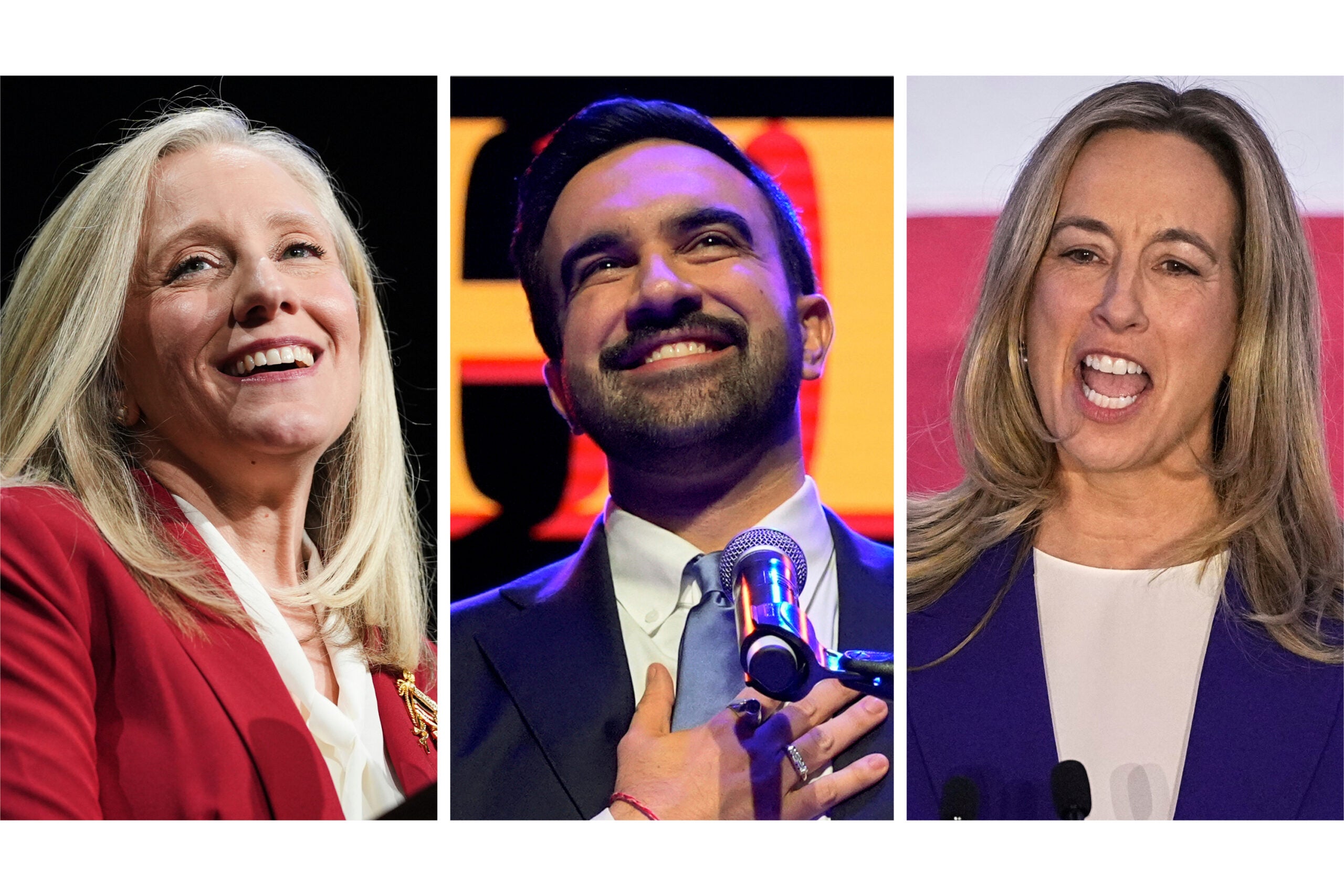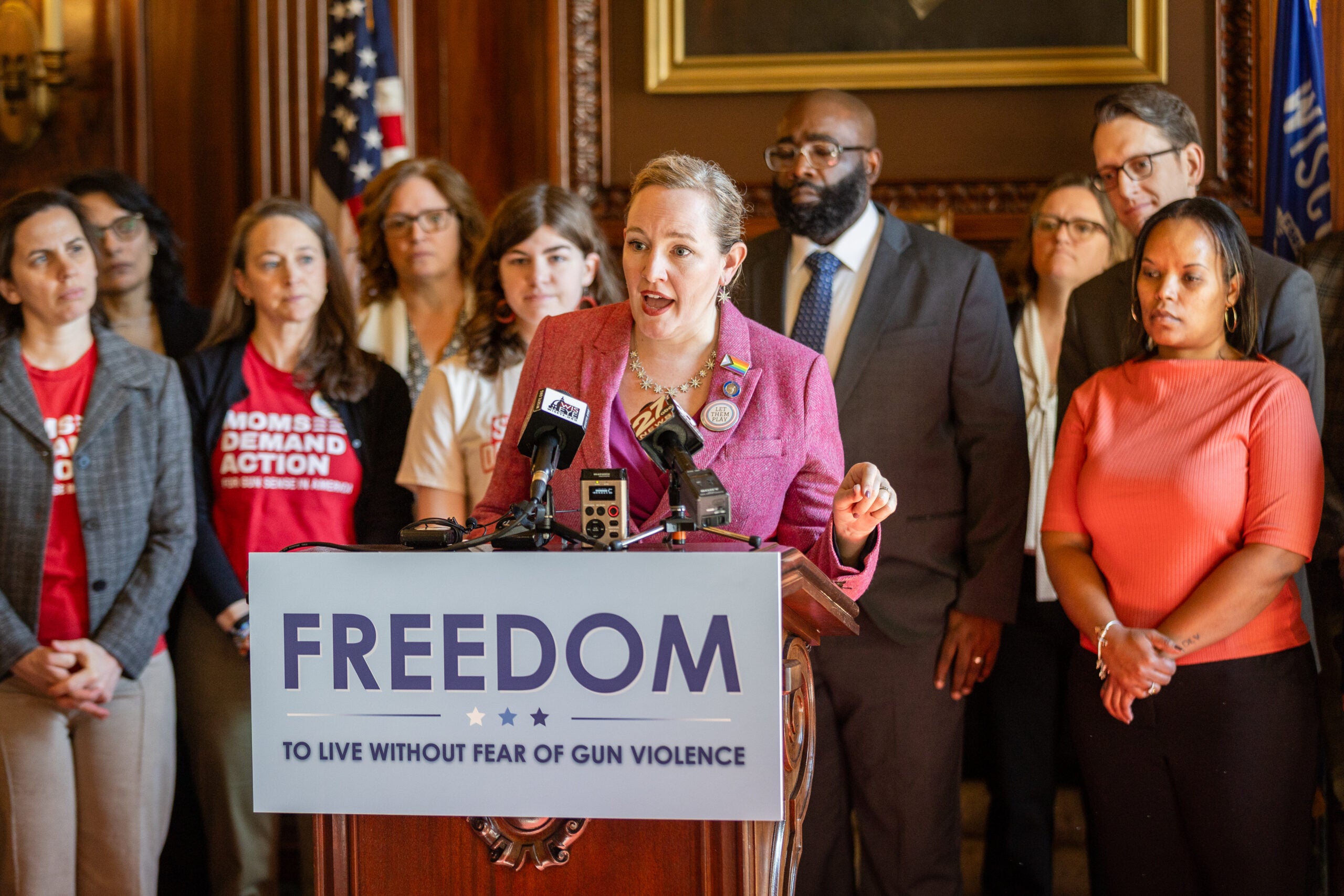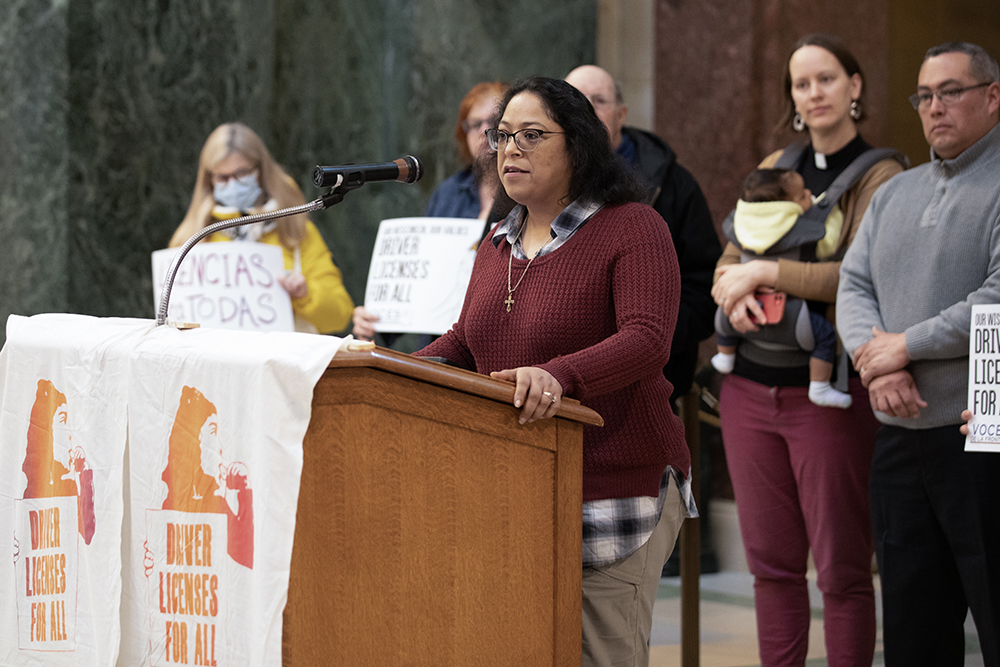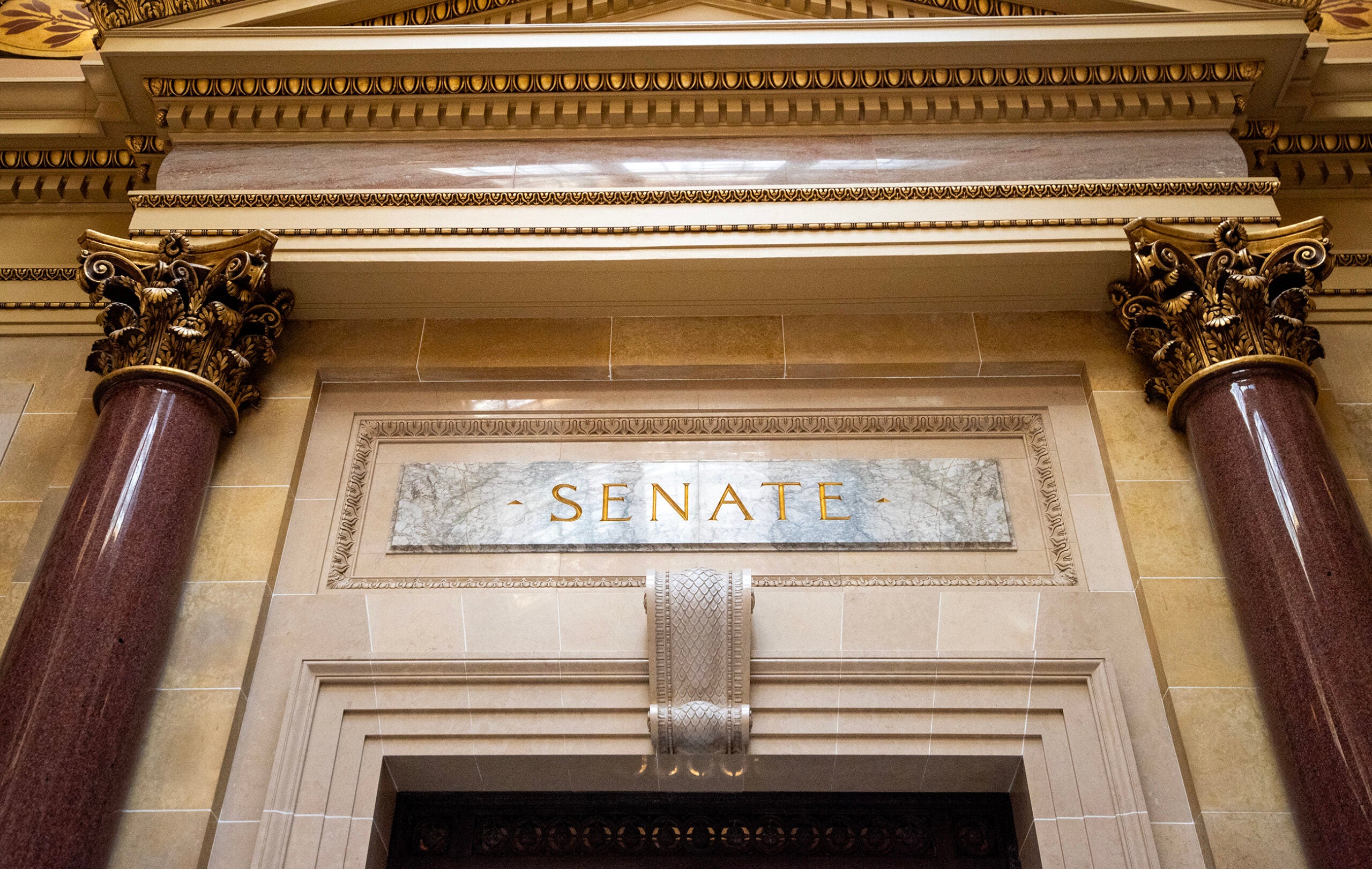There are more Democrats than Republicans competing for seats in the Wisconsin Legislature this November, but which party will ultimately win control likely relies on more than the number of contested races.
Experts say candidate quality, fundraising and the number of incumbents seeking reelection will all play a role in the first election under new legislative maps.
“We have great candidates in every corner of the state,” Senate minority leader Dianne Hesselbein, D-Middleton, told reporters on a conference call Wednesday. “Our candidates reflect their districts and their lived experiences of the constituencies that they hope to represent.”
News with a little more humanity
WPR’s “Wisconsin Today” newsletter keeps you connected to the state you love without feeling overwhelmed. No paywall. No agenda. No corporate filter.
Democrats have candidates running in 97 of the state’s 99 Assembly districts, the party’s largest field of candidates since 2011. Democrats are also contesting all 16 seats in the state Senate.
Republicans, by contrast, are competing in 11 Senate districts and 84 Assembly districts. There are three incumbent Democrats in the Senate facing no opposition: state Sen. Latonya Jackson of Milwaukee; state Sen. Kelda Roys of Madison; and state Sen. Bob Wirch of Pleasant Prairie.
Of the eight incumbent Assembly members without a challenger, only one is a Republican. State Rep. Robert Wittke, R-Racine, moved after redistricting left him in a Democratic seat.
“Republicans let candidate recruitment fall by the wayside this year,” Democratic Party of Wisconsin Chair Ben Wikler said during Wednesday’s call.
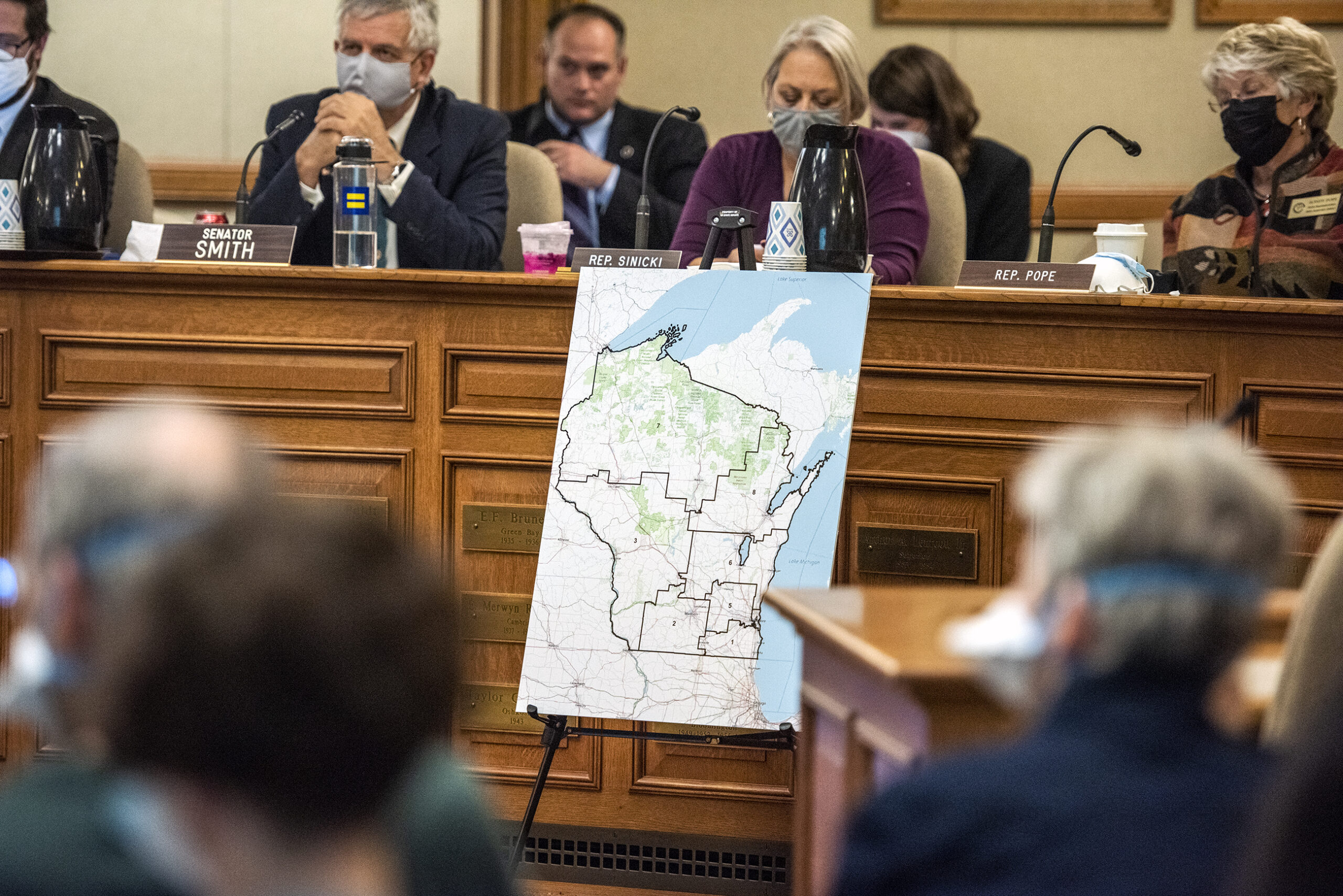
Former Republican Assembly Speaker Scott Jensen disagreed.
“I can understand why the Democrats wanna focus on the number of candidates that they have recruited,” Jensen told WPR. “But what matters is the quality of the candidates in seats that are winnable. Going and recruiting a candidate in a seat that is 80 percent Republican is not likely to result in a victory or to change anything in the Legislature.”
Jensen said that Republicans have fielded strong candidates in districts that have a Democratic lean. He pointed to former Assembly member and former Neenah mayor Dean Kaufert running in the 53rd District and former TV anchor and Eau Claire County Board member Michele Skinner in the 91st District as candidates who can win competitive seats.
New maps put more districts in play
Legislators and Democratic Gov. Tony Evers reached a bipartisan agreement on new legislative maps in February. The deal effectively ended a years-long fight by Democrats to rebalance the political playing field in Wisconsin, where Republican-drawn maps have cemented lopsided GOP majorities in a state that otherwise has a penchant for close elections.
Assembly Minority Leader Greta Neubauer, D-Racine, said the new maps will lead to enthusiasm among Democratic voters.
“Communities like Sheboygan, Wausau and the Chippewa Valley that have been silenced through gerrymandering for over a decade will finally have their voices heard in truly competitive races,” Neubauer said.
Many of the newly competitive legislative districts are also critical to the presidential race, she said.
“And our Democratic candidates for state Assembly are ready to go door-to-door for the entire Democratic ticket and support Democrats winning at every level in the fall,” Neubauer said.
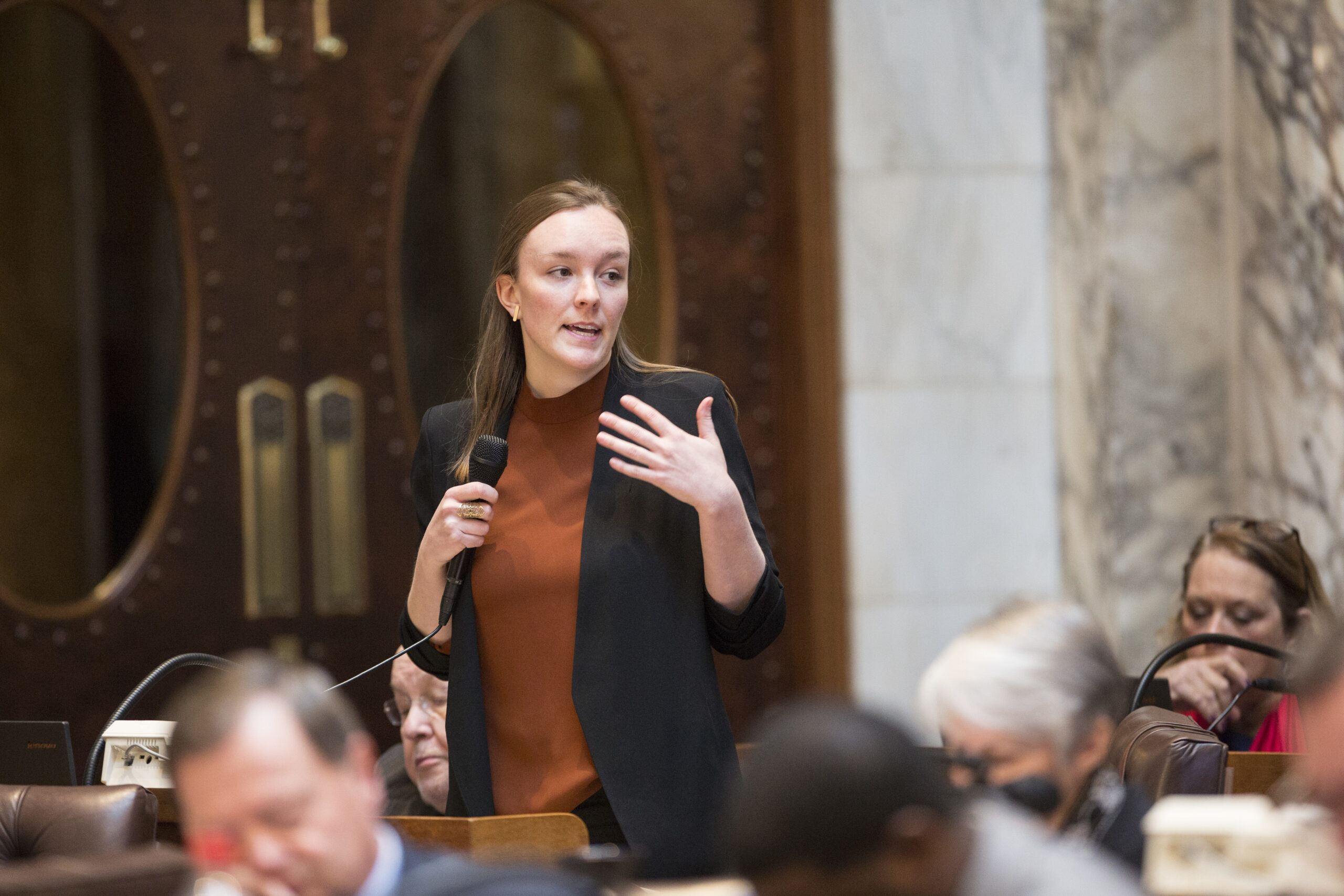
University of Wisconsin-La Crosse political science professor Anthony Chergosky said the same forces that invigorate a party’s voters also help drive candidate recruitment.
“For over a decade, Democrats have been stuck in minority status within the Wisconsin state Legislature, and now they have a fighting chance of at least winning majority control of the state Assembly as the result of the new district maps,” Chergosky said. “And that has undoubtedly resulted in some real excitement on the Democratic party side, and that excitement can lead to better candidate recruitment.”
Democrats plan to spend ‘millions and millions of dollars’
Both parties agree that this year’s legislative races should set records for raising and spending money.
Last month, Neubauer estimated the party would spend tens of millions of dollars on legislative races this fall. Wikler would not commit to a number on Wednesday.
“Collectively, we’ll be investing millions and millions of dollars,” Wikler said. “And that funding will come from people who believe in democracy in order to defeat people that participated in an attempt to overturn the election.”
Jensen said Democrats outspending Republicans has become the norm.
“I don’t have any doubt the Democrats will have more money. That has been the case in Wisconsin politics for a while now,” he said.
“When I was in office, the Democrats would always whine that the Republicans had more money. And now of course, the Republicans are whining that the Democrats have more money. Both of those were true, but campaigns are not just decided by who has more money,” he added.
Jensen said Democrats will pick up seats in both the Senate and Assembly and reduce Republican majorities, but he said Democrats discount the power of incumbency to voters.
“A lot of people, ’cause they know their local legislator, are willing to say, ‘Well, I don’t normally vote Republican, but I like Bob. I think I’m gonna vote for him,’” he said.
Chergosky agreed that Republicans are likely to retain control of both chambers, but he said the Assembly “is really where the action is.”
“Although I believe Republicans are currently the favorite to win the majority control of the state Assembly, Democrats definitely have a fighting chance,” he said. “And that’s more than we could say for any number of previous election cycles.”
Wisconsin Public Radio, © Copyright 2025, Board of Regents of the University of Wisconsin System and Wisconsin Educational Communications Board.

